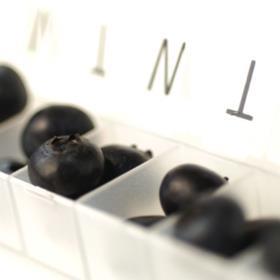
Independent market analyst Datamonitor has warned that the emergence of so-called 'superfruits' could lead to consumers making false assumptions about the nutritional content of fresh produce and therefore prevent them from including an adequate range of nutrients in their everyday diet.
In a new report entitled 'Meeting fruit and vegetable targets', Datamonitor revealed that consumers in the UK are eating more fresh fruits and vegetables in order to meet their five-a-day target.
According to the study, annual consumption of fresh fruit and vegetables in the UK increased from 93kg per person in 2002 to 113kg in 2007. This is forecast to increase further to 123kg by 2012.
However, Datamonitor warned that the emergence of so-called 'superfruits' could be having an adverse effect.Indeed, false assumptions about their nutritional value may actually prevent consumers from fulfilling their fruit and vegetables quotas.
The report found that the quantifiable nature of the five-a-day target has been extremely effective in breaking consumption down into an attainable goal, with a major emphasis now placed on fruit and vegetable consumption as a quantitative target, resulting in consumers looking to quickly ‘dose’ themselves, much like the ingestion of a daily medicine.
'This dosing allows consumers to feel satisfied that they are boosting their health without being inconvenienced by spending large amounts of time planning and preparing nutritious meals,” commented Mark Whalley, consumer markets analyst at Datamonitor and author of the report.
According to Mr Whalley, consumption of fruit and vegetables varies by country, and sometimes by a great deal; however, those countries with low consumption such as the Netherlands, Sweden and the UK are beginning to catch up, while those with a higher consumption are forecast to see a tapering off as consumers cannot, or do not feel inclined to, raise the amount of fruit and vegetables in their diets any further.
Manufacturers, in the meantime, have capitalised on this trend by incorporating more fruits and vegetables into their products, and advertising these goods with healthy messaging, said the Dartamonitor report. As product innovations have become more varied and imaginative, incorporating superfruits such as acai and goji berries has had a widespread impact on the entire industry, it added. “Consumers have responded enthusiastically to the idea that these fruits provide them with an enormous health boost,” said Mr Whalley, “to the extent that the consumption of other fruits and vegetables is suffering.”
Although the popularity of superfruits, as well as the growing number of innovative products which feature them as ingredients, gives consumers extra options in making their fruit and vegetable quota, people must be aware that they are not a 'quick-fix' solution to a worldwide epidemic of low consumption, Mr Whalley observed, adding that overlooking more traditional, 'ordinary' alternatives like apples purely in favour of superfruits will prove detrimental to overall consumption, and ironically begin to undo the positive effects that fruit and vegetable targets have had.
» More information about the report is available from Datamonitor






No comments yet